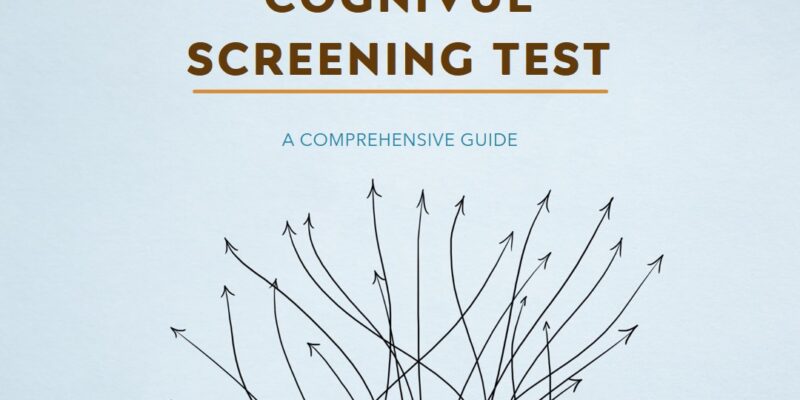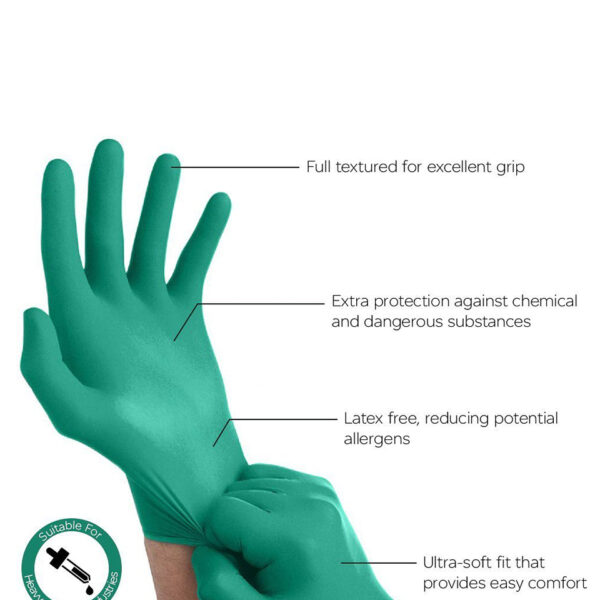
In today’s rapidly evolving healthcare landscape, early and accurate diagnosis of cognitive impairments is crucial for effective treatment and management. The Cognivue screening test, a cutting-edge neuropsychological assessment tool, offers a non-invasive and efficient method to evaluate cognitive functions. This article delves into the conditions the Cognivue screening test can help diagnose, backed by statistics and expert insights, and how Avant can support patients in utilizing this innovative test.
Understanding the Cognivue Screening Test
Cognivue is an FDA-cleared, computer-based test that objectively and quantitatively measures cognitive function. It evaluates various cognitive domains, including memory, visuospatial ability, executive function, and processing speed, through a series of interactive tasks. The test is user-friendly, typically taking about 10 minutes to complete, and provides immediate results, making it an invaluable tool for early detection of cognitive impairments.
Key Conditions Diagnosed by Cognivue
Mild Cognitive Impairment (MCI)
Mild Cognitive Impairment (MCI) is a condition characterized by noticeable cognitive decline that is greater than expected for a person’s age but not severe enough to interfere significantly with daily life. According to the Alzheimer’s Association, approximately 15-20% of people aged 65 or older have MCI. The Cognivue test helps in early identification by assessing memory, executive function, and processing speed, which are often the first areas affected in MCI.
Alzheimer’s Disease and Other Dementias
Alzheimer’s disease, the most common form of dementia, affects an estimated 6.2 million Americans aged 65 and older. Early diagnosis is crucial for managing symptoms and planning for the future. Cognivue can detect subtle cognitive changes that may indicate the onset of Alzheimer’s disease or other dementias, such as Lewy body dementia, vascular dementia, and frontotemporal dementia. By evaluating multiple cognitive domains, Cognivue provides a comprehensive overview that can prompt further diagnostic evaluations.
Post-Stroke Cognitive Impairment
Cognitive impairment is a common consequence of stroke, affecting up to 50% of stroke survivors. The American Stroke Association notes that early cognitive assessment post-stroke can lead to better rehabilitation outcomes. Cognivue’s ability to assess executive function, attention, and processing speed makes it an ideal tool for identifying cognitive deficits in stroke survivors, facilitating timely interventions and support.
Traumatic Brain Injury (TBI)
Traumatic Brain Injury (TBI) can result in a range of cognitive impairments, depending on the severity and location of the injury. According to the Centers for Disease Control and Prevention (CDC), approximately 2.87 million TBI-related emergency department visits, hospitalizations, and deaths occurred in the United States in 2014. Cognivue helps in evaluating the impact of TBI on cognitive functions, aiding in the development of personalized rehabilitation plans.
Age-Related Cognitive Decline
As people age, some degree of cognitive decline is normal. However, distinguishing between normal aging and pathological cognitive decline is essential for appropriate care. Cognivue provides a detailed cognitive profile that can help differentiate between typical age-related changes and more serious conditions like MCI or dementia, ensuring that patients receive the right level of care and support.
- Parkinson’s DiseaseParkinson’s disease is a progressive neurological disorder that affects movement and cognition. Cognitive impairment is common in Parkinson’s patients, with up to 80% developing dementia over the course of the disease. Cognivue can aid in the early detection of cognitive changes in Parkinson’s patients, allowing for timely interventions that can improve quality of life and slow cognitive decline.
- Multiple Sclerosis (MS)Multiple Sclerosis (MS) is an autoimmune disease that affects the central nervous system, leading to cognitive deficits in up to 65% of patients. Cognivue’s comprehensive assessment can identify specific cognitive impairments related to MS, such as difficulties with memory, attention, and information processing, helping to tailor treatment plans and support services for affected individuals.
- Chronic Traumatic Encephalopathy (CTE)Chronic Traumatic Encephalopathy (CTE) is a neurodegenerative disease associated with repetitive head trauma, often seen in athletes and military personnel. Cognitive symptoms of CTE can include memory loss, confusion, and impaired judgment. Cognivue’s ability to detect subtle cognitive changes makes it a valuable tool for monitoring individuals at risk of CTE, potentially leading to earlier diagnosis and better management of the condition.
- Attention Deficit Hyperactivity Disorder (ADHD)ADHD is a common neurodevelopmental disorder characterized by inattention, hyperactivity, and impulsivity. While typically diagnosed in childhood, ADHD can persist into adulthood. Cognivue can help identify cognitive deficits related to ADHD, such as difficulties with executive function and attention, providing valuable insights for diagnosis and treatment planning.
- Depression and Anxiety Disorders
Cognitive impairment is often associated with depression and anxiety disorders. These mental health conditions can affect memory, attention, and executive function. Cognivue can assist in identifying cognitive deficits in patients with depression and anxiety, helping to differentiate between primary cognitive disorders and cognitive symptoms secondary to mental health issues.
Avant and Cognivue: A Partnership for Better Cognitive Health
At Avant, we understand the importance of early and accurate cognitive assessment in managing and treating cognitive impairments. Our partnership with Cognivue allows us to offer this advanced screening test to our patients, providing them with a reliable and objective measure of their cognitive health. By incorporating Cognivue into our diagnostic toolkit, we can help patients identify potential cognitive issues early and work with them to develop effective management plans.
FAQs about the Cognivue Screening Test
Q1: How long does the Cognivue screening test take?
A1: The Cognivue screening test typically takes about 10 minutes to complete. It is designed to be quick and user-friendly while providing comprehensive cognitive assessment results.
Q2: Is the Cognivue test invasive?
A2: No, the Cognivue test is non-invasive. It involves a series of interactive tasks completed on a computer, making it a safe and comfortable option for patients.
Q3: How accurate is the Cognivue screening test?
A3: Cognivue is FDA-cleared and has been validated through extensive clinical research. It provides an objective and quantitative measure of cognitive function, offering reliable results.
Q4: Who should consider taking the Cognivue screening test?
A4: The Cognivue test is suitable for individuals who have concerns about their cognitive health, including those with a family history of cognitive impairment, stroke survivors, individuals with TBI, and older adults experiencing cognitive changes.
Q5: Can Cognivue help in monitoring cognitive changes over time?
A5: Yes, Cognivue can be used to track cognitive changes over time, allowing healthcare providers to monitor the progression of cognitive impairments and adjust treatment plans accordingly.
Conclusion
The Cognivue screening test is a powerful tool for diagnosing a range of cognitive conditions, from mild cognitive impairment and Alzheimer’s disease to post-stroke cognitive impairment and traumatic brain injury. Its ability to provide quick, reliable, and comprehensive assessments makes it an invaluable resource for early detection and effective management of cognitive health issues. Avant is committed to helping patients utilize the Cognivue test to safeguard their cognitive health and improve their quality of life.
Are you ready to take the first step towards better cognitive health by considering a Cognivue screening test?
Also know about Optimize Health with Tailored Doctor Consultations











